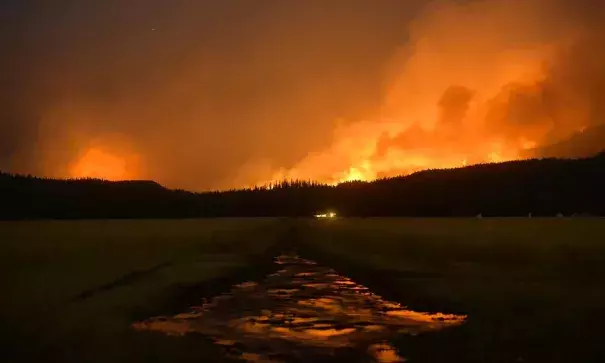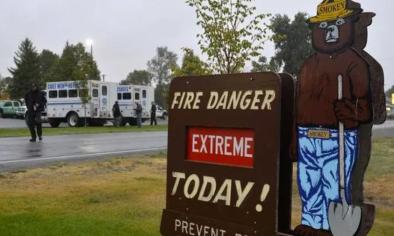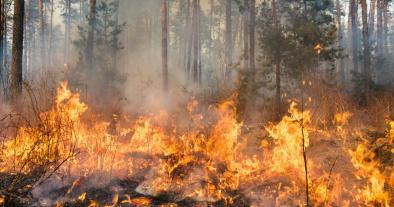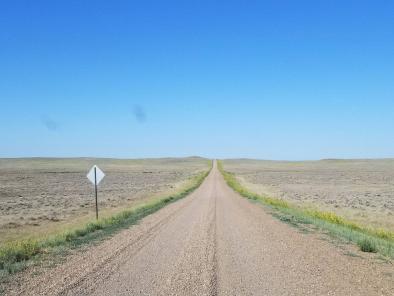The unprecedented drought that's crippling Montana and North Dakota

While much of the country’s attention in recent weeks has been on the hurricanes striking southern Texas and the Caribbean, a so-called “flash drought”, an unpredictable, sudden event brought on by sustained high temperatures and little rain, has seized a swathe of the country and left farmers with little remedy. Across Montana’s northern border and east into North Dakota, farms are turning out less wheat than last year, much of it poorer quality than normal.
Most farmers in and around the Fort Peck Reservation agree that climate change is to blame for the sudden drought and ruined crops, but that doesn’t change the fact that farmers and others who make their living off of agriculture are now subject to shifting political winds and strained debate around the issue.
“This is unprecedented,” says Tanja Fransen of the National Weather Service in Glasgow, a larger city just up the road from Fort Peck. “This is as dry as it’s been in recorded history and some of our recording stations have 100 years of data. A lot of people try to compare this to previous years, but really, you just can’t.”
...
[Adnan Akyuz, the state climatologist for North Dakota] said that March through July was the third-driest five months on record in North Dakota since 1895, a dire situation impossible to predict given traditional methods of weighing snowpack with average seasonal temperatures to monitor for potential drought. But in the future, unpredictable may be the best prediction.
...
“The new normal is that now we have a warmer world, in times when you’re not getting your normal load of rain, things can go bad very quickly,” said Brenda Ekwurzel, senior climate scientist with the Union of Concerned Scientists.
Partly as a result of the drought, Montana is also dealing with one of its worst wildfire seasons on record. As of early September, wildfires have burned more than 1m acres – among the state’s top five most devastating fire seasons in terms of acres burned – and forecasts suggest the destruction will continue for weeks.
...
Rick Kirn, only one of the thousands of farmers and ranchers hit by the disaster, thinks this might be the end of his farming days. Irrigation is too expensive for small farming operations, leaving crops at the mercy of climate. “This is absolutely the worst year I’ve ever seen,” he says, gesturing across the barren fields.
Related Content





